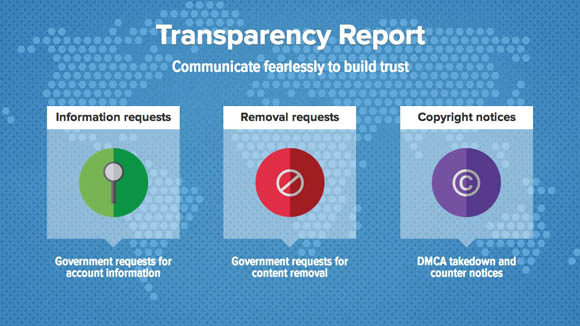Governments of the world just won't leave Twitter alone
Did they tweet the requests?

Sign up for breaking news, reviews, opinion, top tech deals, and more.
You are now subscribed
Your newsletter sign-up was successful
Information requests from governments all over the world are on the rise, Twitter revealed today.
In its latest bi-annual transparency report, the California-based social network claimed it received 1,157 information requests from governments during the first half of 2013.
That's up from 1,009 requests in the second half of 2012 and 849 in the six months prior to that.
A full 78 percent of those requests came from the U.S. government.
That's not all, folks
Twitter's transparency reports also include information about removal requests and copyright notices.
According to today's report, the company received 60 requests from governments and other authorized bodies to remove allegedly illegal (but not copyrighted) content from the social network from January to the end of June, up from 42 in the second of half of 2012 and just six in the first half..
Similarly, Digital Millenium Copyright Act copyright infringement takedown notices and counter notices jumped from 3,268 in the last six months of 2012 to 5,753 in the the first half of 2013, a 76 percent increase.
Sign up for breaking news, reviews, opinion, top tech deals, and more.
The top three requesters in the last six months included copyright organizations Remove Your Media and Copyright Integrity International, as well as the Recording Industry Association of America.
Committed to transparency
"We may not be allowed to provide notice to users in all situations or win every fight we take up on behalf of our users, but Twitter remains steadfastly committed to being transparent about requests we've received and the resulting actions we've taken," Twitter's Legal Policy Manager Jeremy Kessel wrote in an official blog post today.
Twitter's reports currently make no distinction between secret so-called "national security requests" and non-secret government requests, but the social network is working to change the law preventing it from doing so, especially given the recent revelations about the National Security Agency's online surveillance programs.
"An important conversation has begun about the extent to which companies should be allowed to publish information regarding national security requests," Kessel wrote.
"We have joined forces with industry peers and civil liberty groups to insist that the United States government allow for increased transparency into these secret orders. We believe it's important to be able to publish numbers of national security requests – including FISA disclosures – separately from non-secret requests. Unfortunately, we are still not able to include such metrics."
Michael Rougeau is a former freelance news writer for TechRadar. Studying at Goldsmiths, University of London, and Northeastern University, Michael has bylines at Kotaku, 1UP, G4, Complex Magazine, Digital Trends, GamesRadar, GameSpot, IFC, Animal New York, @Gamer, Inside the Magic, Comic Book Resources, Zap2It, TabTimes, GameZone, Cheat Code Central, Gameshark, Gameranx, The Industry, Debonair Mag, Kombo, and others.
Micheal also spent time as the Games Editor for Playboy.com, and was the managing editor at GameSpot before becoming an Animal Care Manager for Wags and Walks.
